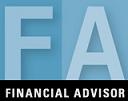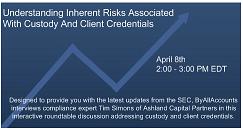 I recently received my May issue of Financial Advisor magazine and read David Lawrence’s article on document management titled Worth the Investment (click here to view online). This article describes the benefits of implementing an effective and easy-to-use document management system, a.k.a. electronic content management (ECM) system.
I recently received my May issue of Financial Advisor magazine and read David Lawrence’s article on document management titled Worth the Investment (click here to view online). This article describes the benefits of implementing an effective and easy-to-use document management system, a.k.a. electronic content management (ECM) system.
In the article, though, Mr. Lawrence said one thing that grabbed my attention. He wrote (my emphasis added):
A common mistake made by some firms is to use a system that saves documents in a PDF instead of a more secure format such as a TIFF. This means documents can be altered after the fact, and the firm risks potentially violating federal regulations. While some scanner manufacturers have addressed this issue with post-imprint symbols and other coding mechanisms to ensure authenticity, there are still lingering doubts about the security of the original documents.
Now hold on for one minute. TIFF files are “more secure” than PDF files?!?

 A story from New York Times personal finance columnist Ron Lieber quickly traveled through the Twitter universe and landed in my inbox. Lieber is a client of NAPFA-member
A story from New York Times personal finance columnist Ron Lieber quickly traveled through the Twitter universe and landed in my inbox. Lieber is a client of NAPFA-member 





